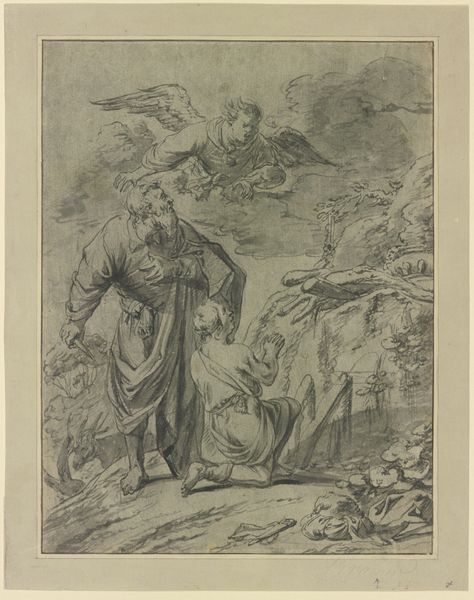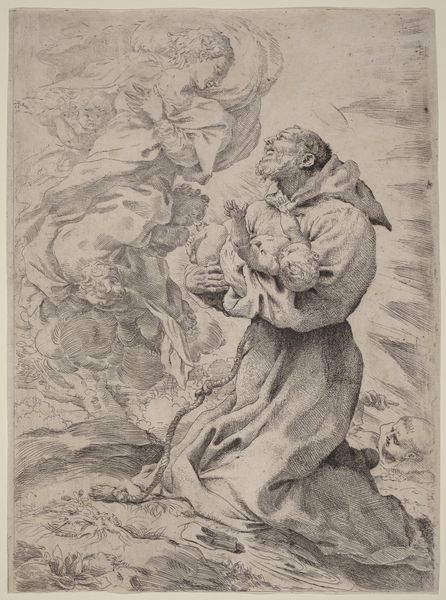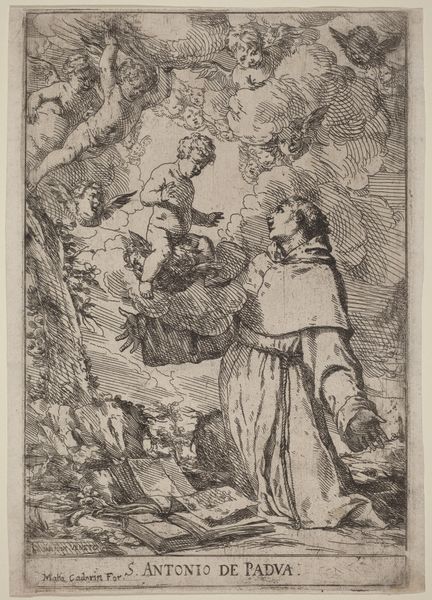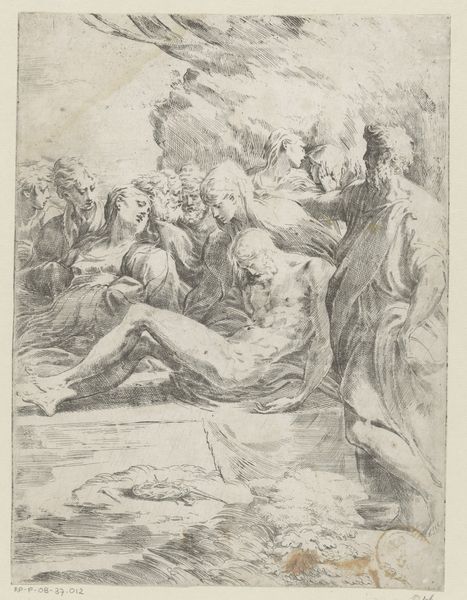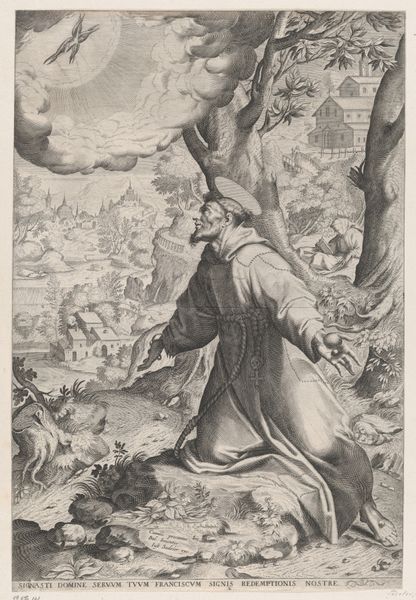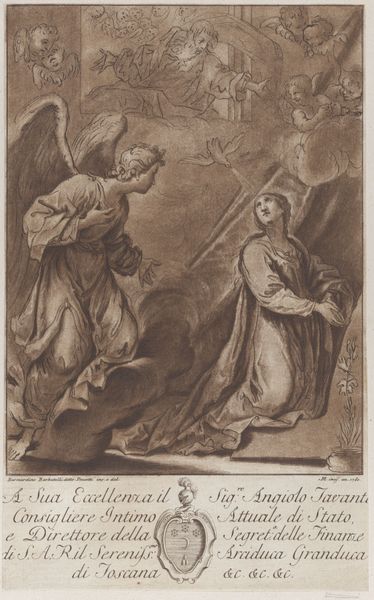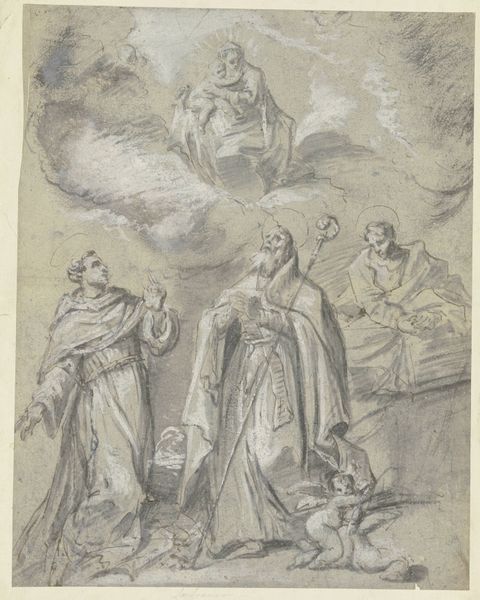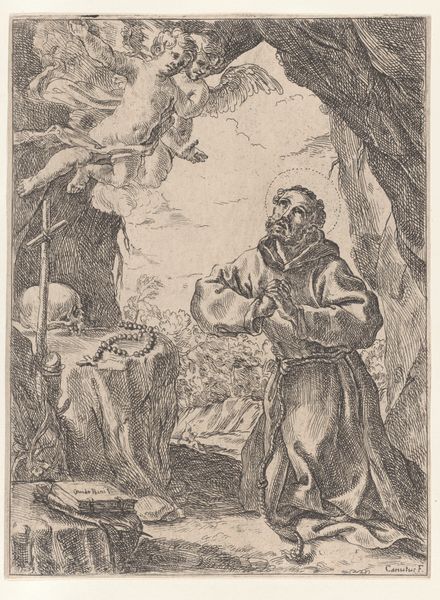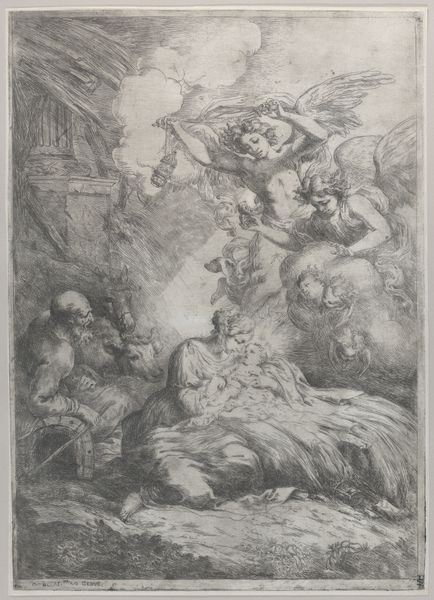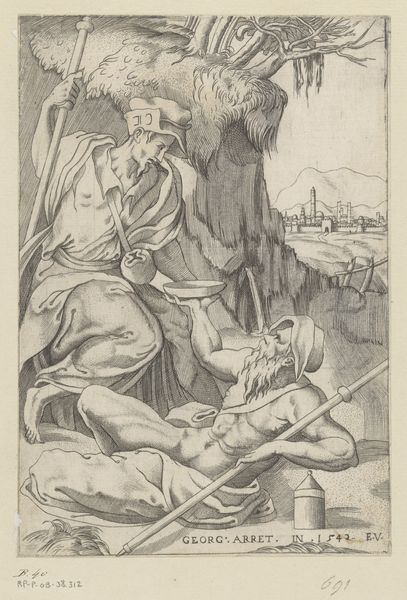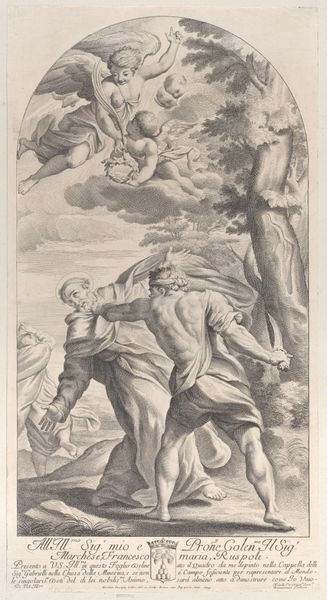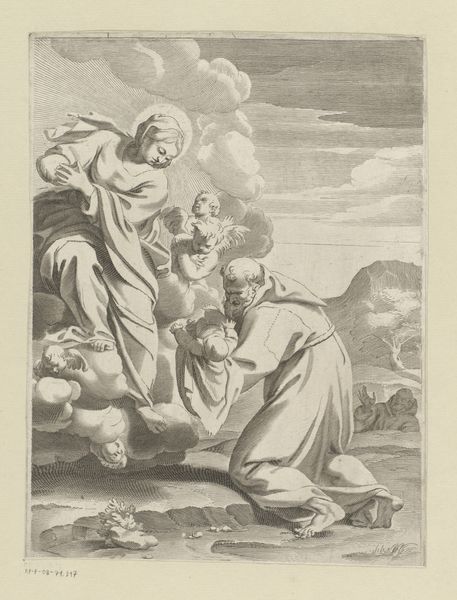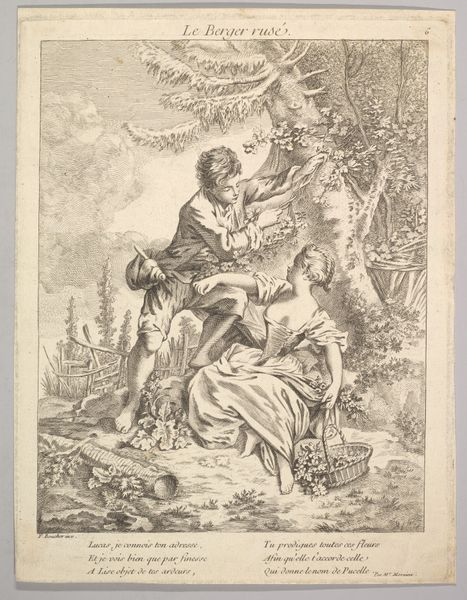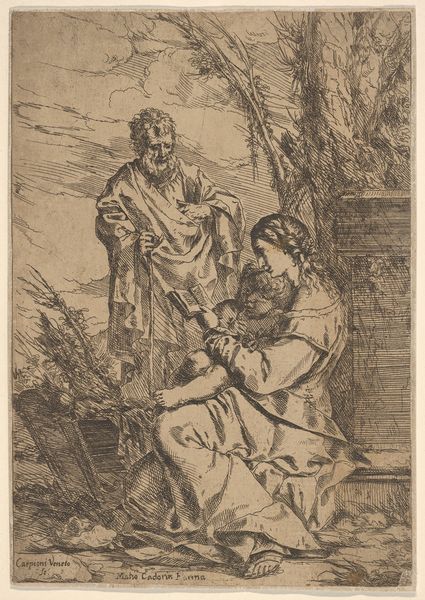
Abraham im Begriff seinen Sohn Isaak zu opfern, erblickt den Engel
0:00
0:00
drawing, paper, pencil
#
drawing
#
allegory
#
baroque
#
landscape
#
figuration
#
paper
#
pencil
#
history-painting
Copyright: Public Domain
Editor: Here we have Leonaert Bramer's "Abraham im Begriff seinen Sohn Isaak zu opfern, erblickt den Engel," a pencil drawing on paper. It depicts a pretty intense moment! What really strikes me is the starkness of the scene despite being a drawing. What do you see in this piece? Curator: I see a potent commentary on power, obedience, and divine intervention as tools for dominance, issues still acutely relevant today. The story itself is ethically fraught, highlighting the dangers of unquestioning obedience to authority. Bramer’s baroque style intensifies the drama, doesn't it? Editor: Absolutely. The angel's intervention feels almost… convenient? Do you think Bramer is subtly questioning the narrative itself? Curator: It's possible. By emphasizing the tension and emotional weight of the scene, he invites us to analyze the psychological toll on Abraham and Isaac, rather than just accepting the divine justification. Consider also the role of women missing here. How might Sarah's perspective change this scene? Editor: That’s a good point! Seeing it through Sarah’s eyes introduces another layer of complexity. A mother’s anguish would be so palpable, yet silenced. It forces a rethinking of the traditional interpretation, focusing more on human cost than divine glory. Curator: Exactly. It reminds us that history is rarely monolithic and the dominant narratives often marginalize or erase the experiences of those without power. And the scene here could apply to other current scenarios as well. Editor: I see that connection much clearer now. Looking at this through an intersectional lens unveils previously unseen perspectives. I definitely leave this conversation viewing this art in a new light! Curator: Precisely! Art acts as an invitation to analyze assumptions and open discussion on pressing issues, so thank you for providing your observations.
Comments
No comments
Be the first to comment and join the conversation on the ultimate creative platform.
